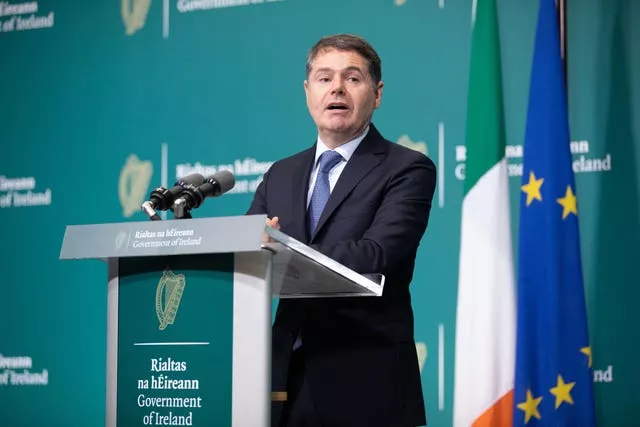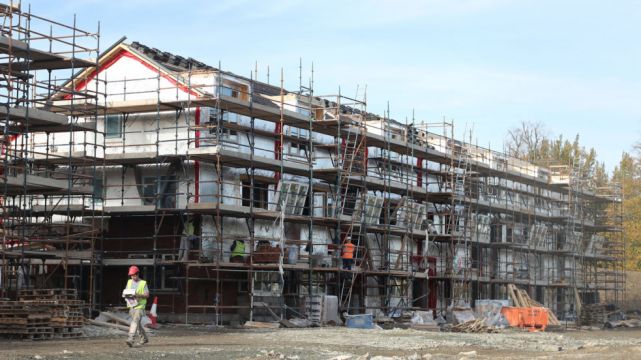The Taoiseach has hinted where the Government could spend the billions of euro in back taxes from Apple, saying areas worthy of consideration include housing and infrastructure.
Simon Harris said the three-party coalition Government will reflect “for a brief period” of time before coming to a decision on how to use the funds.
On Tuesday, the European Court of Justice issued a judgment to restore a 2016 European Commission ruling that Ireland gave undue tax benefits to Apple, which would be illegal under EU state aid rules.
Europe’s top court issued the final judgment that will see the Government recover more than €13 billion in back taxes from Apple.

Mr Harris said the ruling gives finality on the matter, adding that it was a historical legacy issue.
Speaking at the Fine Gael Think In, which is taking place in Tullamore across two days, Mr Harris said the Government will “calmly” consider how it will use the huge funding boost.
“We will obviously have to have a considered discussion as a government as to what to do with that level of funding that clearly is one off,” Mr Harris said.
“We will have that discussion. We should have that discussion as three parties.
“I think there are clear areas where it would merit consideration around infrastructure, housing and other areas where there are constraints.
“I don’t think it’s useful for everybody to make lots of different suggestions here.
“I think what is most useful is that Government, in due course, calmly considers the matter as to what is the most appropriate use of these resources, in the interest of the Irish people, our country and our economy.
“I’m sure there’ll be many projects, many areas that will fit that bill.”
Mr Harris said that money will be absorbed back into the exchequer, which will take a period of time, and that the €13 billion, which has been held in an escrow fund pending the outcome of the case, has not been transferred to the Government.
“We also know this, it can’t be spent on recurrent spending, so it can’t be spent on kind of day to day stuff, because it is once off in nature,” Mr Harris added.
“But there is scope to say how best you put that to use in the interests of the Irish people now and into the future.
“There’ll be a number of different options, and maybe even a menu of options, and maybe even a variety of choices.
“But it would be, in my view, irresponsible to definitively say this must happen today. I think the more appropriate thing is for Government to reflect, for a brief period, and then the three parties to see if we can find common ground in relation to this.”
Minister for Public Expenditure Paschal Donohoe reiterated Mr Harris’s comments on how the Government will use the funding, saying that he and the three party leaders alongside the Minister for Finance Jack Chambers will be involved in the discussions.

Mr Donohoe added: “Firstly, we will be again pointing to all of the changes that we have made to our corporate tax policy in recent years.
“Ireland made a historic decision to enter and to embrace the OECD process, which was about how we change global corporate tax policy, with all of the change that we had to make here in Ireland.
“What we will do with the three leaders, with myself, Minister Chambers, is make careful consideration of a decision that only happened yesterday, about what is the right long-term decision for our country’s future.”
Mr Harris said the Government will set out its revised housing targets, stating that it can deliver 50,000 homes a year.
He said housing remains the “biggest social and economic challenge” in the country.
“People talk about when Fine Gael came to Government 13 years ago, when we came to Government in that year, there were fewer than 7,000 homes built,” he added.
“This year, we’ll see 40,000 [houses]. Very significant progress has been made when it comes to housing supply, but now is the time to increase the scale of our ambition.
“This Government and Fine Gael in Government, in the coming weeks will work with partners to set new housing targets, to agree a new national planning framework, and to get us to a point where we can credibly show the Irish people how, on average, over 50,000 homes a year can be delivered, and over a quarter of a million new homes for our people over the course of 2025 and 2030.”







